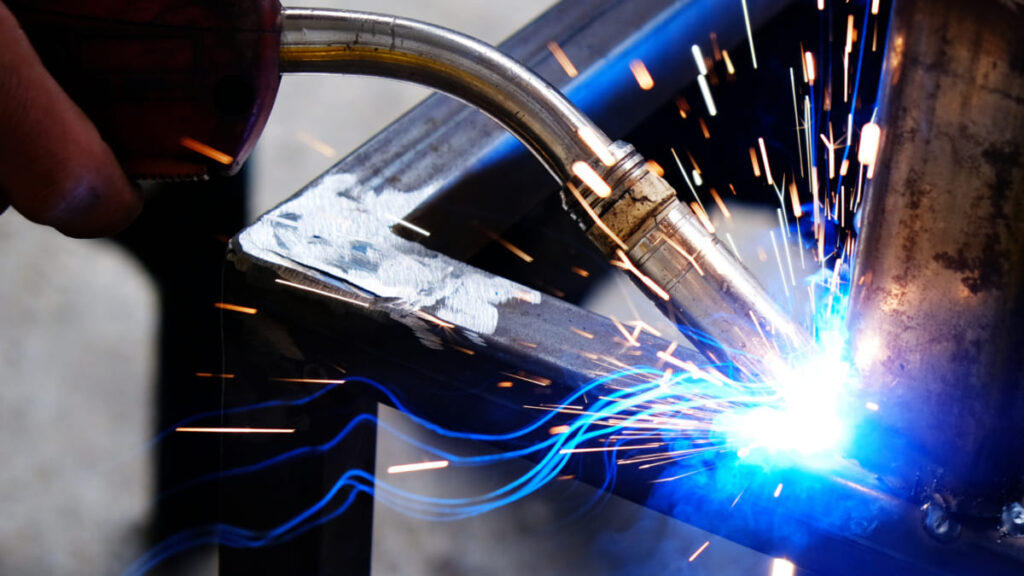A simplified view of welding is that it plays a perfunctory role in the manufacturing process by being used to join pieces of metal together.
That view could not be further from the truth. Welding plays a vital and complex role in the spheres of manufacturing and construction.
This indispensable process, harnessing the power of heat and sometimes pressure, not only ensures the durability and strength of structures but also underpins the functionality and safety of countless products and edifices.

When you search for a welding fabricator near me you will be reaching out to someone who has the skills and knowledge to perform a variety of useful and sometimes complex tasks.
Here is a look at why welding can be considered a vital cornerstone of many industrial processes.
How Welding is Used Across Industries?
At its core, welding facilitates the creation of a myriad of products and structures. In manufacturing, it is crucial for the assembly of automobiles, airplanes, ships, and even office and home appliances. It is also a key process in enabling the production of complex and reliable machines.
Welding allows for the seamless joining of different components, ensuring that they function as a cohesive unit. This is particularly important in industries where safety and performance are paramount, such as the automotive and aerospace sectors.
The use of welding ensures that vehicles and aircraft can withstand the stresses and strains of operation, vital for safeguarding human lives and cargo.
A Indispensable Ally in the World of Construction.
When it comes to the construction industry, welding’s importance is equally pronounced. It is essential for the erection of buildings, bridges, pipelines, and other critical infrastructure.
Welding provides the structural integrity needed to withstand natural and man-made forces, ensuring the longevity and safety of constructions. The ability to join various materials firmly and permanently allows for the realization of architectural visions and the construction of complex structures that are both functional and aesthetically pleasing.
Welding Holds Economic Significance.
The economic implications of welding are profound. It is a driving force behind job creation, skill development, and technological advancement.
The welding industry not only employs a significant number of people but also stimulates innovation in welding techniques and materials. Advances in welding technology, such as robotic welding and laser welding, have also opened up new possibilities for manufacturing and construction, improving efficiency at the same time.
In addition, welding plays a crucial role in the maintenance and repair of products and structures, extending their lifespan and enhancing sustainability.
At the Forefront of Technology.
Welding also contributes significantly to technological innovation.
The development of new welding methods and materials has led to improvements in product design and functionality. For instance, the use of lightweight, high-strength materials in the automotive industry, made possible by advanced welding techniques, has resulted in vehicles that are both safer and more fuel-efficient.
Environmental Credentials.
Another final noteworthy point is that welding has an essential role in addressing environmental challenges. Through the development of more efficient welding processes and the use of sustainable materials, the welding industry is contributing to the reduction of carbon footprints and the conservation of resources.
As you can see, welding is a linchpin of manufacturing and construction, fundamental to the integrity, safety, and functionality of products and structures. Its role extends beyond the mere joining of materials. That’s food for thought the next time you have a welding task to arrange.

